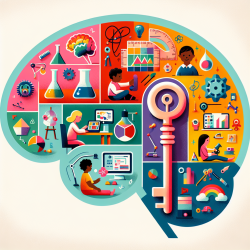Understanding the Importance of Spatial Skills
Spatial skills are a crucial component of cognitive development and are directly linked to success in STEM (Science, Technology, Engineering, and Mathematics) fields. These skills involve the ability to visualize and manipulate objects in space, which is essential for problem-solving and innovation in STEM disciplines.
Challenges in Assessing Spatial Skills
Despite their importance, assessing spatial skills presents several challenges. According to the research article "How Can We Best Assess Spatial Skills? Practical and Conceptual Challenges," there is a significant lack of reliable, valid, and accessible spatial tests. This gap hampers the ability to effectively measure and improve these skills in children.
Key Challenges Identified
- Access to Tests: Many spatial tests are not readily accessible, and there is often confusion about how to obtain them.
- Validity and Reliability: A substantial number of tests lack comprehensive psychometric data, making it difficult to ensure their effectiveness.
- Age and Cultural Appropriateness: Existing tests may not cater to diverse age groups or cultural backgrounds, limiting their applicability.
Proposed Solutions
The research outlines a roadmap for overcoming these challenges, emphasizing the development of shared testing systems and technological innovations like virtual reality. By creating a centralized repository of well-documented and validated tests, educators and therapists can have better access to tools that support spatial skill development.
Implementing Research Outcomes
Practitioners can enhance their skills by integrating the findings of this research into their practice. Here are some actionable steps:
- Stay Informed: Regularly update your knowledge about new spatial tests and their psychometric properties.
- Utilize Technology: Incorporate technological advancements like virtual reality to create engaging and effective spatial skill assessments.
- Collaborate: Work with researchers and other educators to develop and share resources that improve spatial skill assessments.
Conclusion
Improving the assessment and development of spatial skills is essential for fostering better STEM outcomes in children. By addressing the current challenges and implementing innovative solutions, educators and therapists can empower the next generation of STEM leaders.
To read the original research paper, please follow this link: How Can We Best Assess Spatial Skills? Practical and Conceptual Challenges.










